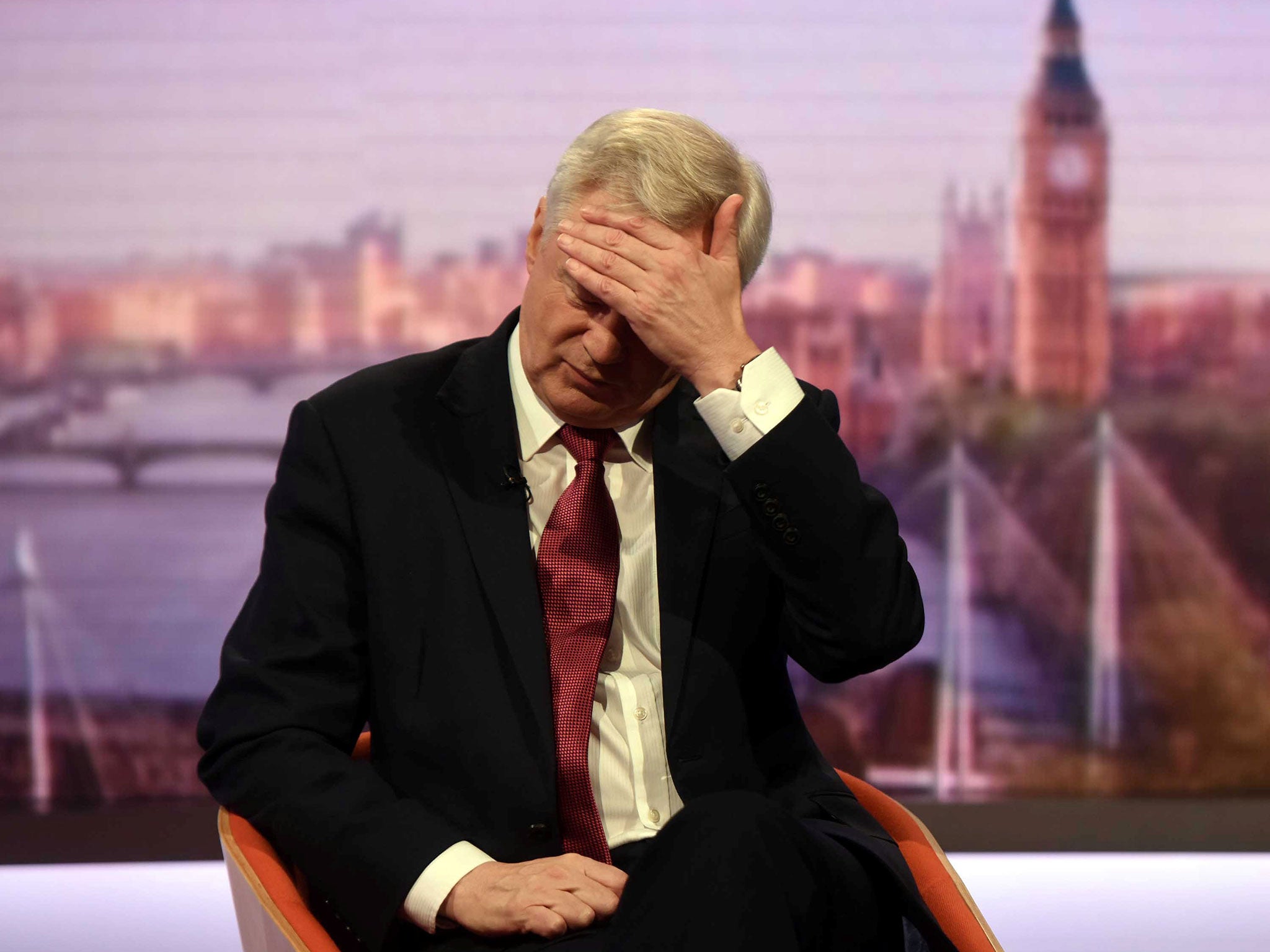This is where Britain currently stands with its Brexit deal. It's not good
The Australian-style points system for immigration has been scrapped, and it looks like the housing market might begin to crash. If Britain wants to rejoin once the economic catastrophe becomes clear, the EU has already said we'll have to join the euro and won't get a penny of the 'divorce settlement' back


Your support helps us to tell the story
From reproductive rights to climate change to Big Tech, The Independent is on the ground when the story is developing. Whether it's investigating the financials of Elon Musk's pro-Trump PAC or producing our latest documentary, 'The A Word', which shines a light on the American women fighting for reproductive rights, we know how important it is to parse out the facts from the messaging.
At such a critical moment in US history, we need reporters on the ground. Your donation allows us to keep sending journalists to speak to both sides of the story.
The Independent is trusted by Americans across the entire political spectrum. And unlike many other quality news outlets, we choose not to lock Americans out of our reporting and analysis with paywalls. We believe quality journalism should be available to everyone, paid for by those who can afford it.
Your support makes all the difference.The French are already counting us out of the EU. The recently updated edition of Aedis’ “Petit Guide” shows a map of 27 EU countries, excluding the UK.
Regardless of the French forward thinking, however, Britain hasn’t yet left the EU. But how are we doing with Brexit?
Here is a small factoid. A central city one bedroom apartment in Britain, furnished, cost £450 per week in March last year. A two-bedroom in the same building cost £700. Today the one bedroom costs £380 – a 16 per cent drop. The two bedroom costs £550 – a 22 per cent drop.
The impact is caused, according to estate agents, by a drop-off in international demand post-Brexit. Fewer people want to come to Britain. Good for tenants, bad for landlords.
Estate agents expect that a sustained drop in rental yields will flow through to a drop in real estate prices. Good if you are a buyer, but bad if you are a seller.
When we look at the broader economy we see the stock market measured by the FTSE, measured in pounds, is up. But when the FTSE is measured against a basket of currencies, including the Australian and US dollars and the euro, we see the FTSE is down.
For most Britons earning money in pounds, spending in pounds and eventually retiring in Britain, the foreign currency impact is not immediately felt. But the pound is down around 20 per cent, making us all, on a global level, 20 per cent poorer.
The drop in the pound is pushing inflation up, as imported goods increase in price. Our GDP growth has gone from the strongest in Europe to the weakest in Europe – all in the year since the Brexit vote.
Things could get worse for Britain. Some banks and insurance companies are already relocating or planning to relocate. Will the overall impact on Britain of these businesses leaving or downsizing be small, medium or large? While we are not sure of the scale yet, we can say for sure that it will not be positive. There are no banks and insurance companies lining up to come to Britain, just those who talk about leaving.
There is a narrative in Brexit circles that lost business is OK because the UK can increase trade with the rest of the world, particularly the Commonwealth and especially Canada and Australia. But is this likely to be true?
Around half of British trade is with the EU, less than 10 per cent with the Commonwealth and less than 2 per cent with Australia. If we see a drop in UK/EU trade from 50 per cent to 45 per cent, to stay even, UK/Australian trade would need to more nearly triple.
Is this likely? Australian and Commonwealth trade comes to the UK, in significant part, because the UK is “the front door to Europe”. Currently, once goods or services are landed in the UK, those goods or services are inside the Customs Union and free to trade across Europe. This is why the UK is attractive to countries like Australia.
So why would Australian companies trading with the UK increase trade when the UK slams that attractive front door shut? Landing goods or services in the UK will become an additional cost, not a cost saving, as these goods or services would still need to land in another EU country. So why not go straight to Europe and skip the UK all together?
Rather than increase trade, some overseas businesses will leave the UK, searching for another base in the EU. How much Australian, Commonwealth and overseas business will leave the UK? Small, medium, or large? How could it be positive?
There is one narrow, possible path to create Britain as an island of trading excellence that may, in the medium term, lead to positive benefits. The UK could plug into the new Chinese One Belt One Road Initiative, of which I have written before. However, as yet, there is no indication that the Government is seeing that opportunity.
So was Brexit a mistake?
There is a non-economic and emotional argument for “Britain to rule Britain”. History is littered with countries that have chosen “freedom” and independence over wealth. But did they do so knowing the cost?
I would have had no problem with Brexit if the arguments, on both sides, had have been based on truth. However, the fiction that Britain will somehow be economically better-off after Brexit looks more like a deliberate lie sold to a willing audience. The £350m a week to the NHS has already been discarded and the Australian-style points system for immigration already scrapped.
If it turns out that Britain is in real economic trouble by the time the two-year exit negotiations have finished, the UK population will start to get angry. Yes, many wanted their “freedom” from Europe, but how many will have done so in full understanding of the cost?
There will be calls for another referendum, but the Europeans have already said that if the UK wants to come back, Britain would no longer have its rebate and will be asked to join the euro. Britain will say no to that.
Net result: Britain will be isolated, angry and poorer with a hung parliament and an unpopular PM. Not a good mix for future success.
Andrew MacLeod is a visiting professor at King's College London. He is co-founder of BrexitAdvisoryServices.co.uk, Chair of Griffin Law, a non-executive director to Australian and US companies and a former high level UN official. His Twitter handle is @AndrewMMacLeod
Join our commenting forum
Join thought-provoking conversations, follow other Independent readers and see their replies
Comments